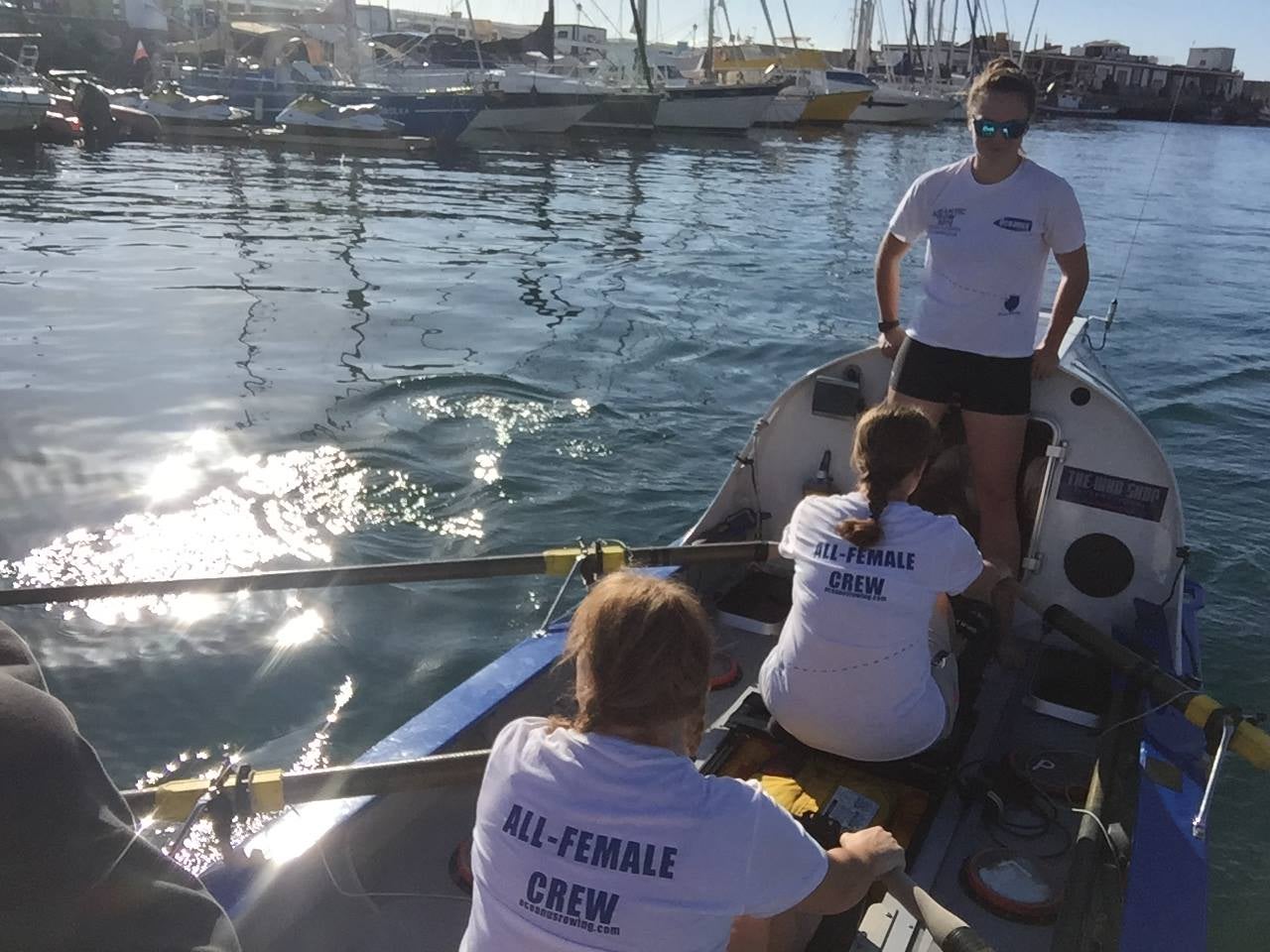Female rowers without oars rescued from the mid Atlantic
The four women set out a distress signal on Saturday after their boat capsized

Your support helps us to tell the story
From reproductive rights to climate change to Big Tech, The Independent is on the ground when the story is developing. Whether it's investigating the financials of Elon Musk's pro-Trump PAC or producing our latest documentary, 'The A Word', which shines a light on the American women fighting for reproductive rights, we know how important it is to parse out the facts from the messaging.
At such a critical moment in US history, we need reporters on the ground. Your donation allows us to keep sending journalists to speak to both sides of the story.
The Independent is trusted by Americans across the entire political spectrum. And unlike many other quality news outlets, we choose not to lock Americans out of our reporting and analysis with paywalls. We believe quality journalism should be available to everyone, paid for by those who can afford it.
Your support makes all the difference.Four British women have been rescued after becoming stranded in the mid-Atlantic Ocean for more than 16 hours when their rowing boat capsized, robbing them of their oars.
The crew sent a distress signal at 9.08am on Saturday, when they were 400 nautical miles from Cape Verde, off the coast of Africa, the Maritime and Coastguard Agency said.
Gemma Chalk, Clare Lanyon, Jane McIntosh and Olivia Wilson were forced to abandon their charity attempt to break the women's speed record for rowing nearly 3,000 miles across the Atlantic between Gran Canaria and Barbados.
Their ocean rowing boat Fire Ant had capsized several times, causing them to lose the oars and global positioning system and leaving them with no way to navigate or manoeuvre.
After managing to contact them on a satellite phone, the UK Coastguard asked them to activate an emergency beacon before sending a mayday broadcast to other ships in the area.
The quartet, who are said to be "well", were finally rescued at 1.25am on Sunday by a bulk carrier on its way to Canada.
UK Coastguard duty controller Ian Guy said: "The rowers were an extremely long way from land with no other vessels in the immediate vicinity. We received several responses to our mayday request, the nearest vessel being 90 nautical miles away, they quickly diverted and set course to the stricken rowers, taking 11 hours to reach them.
"This shows you how important it is to be prepared for your voyage and have several means of contacting the coastguard or raising an alarm, even if you are not in UK waters.

"Thankfully the rowers are now on board the bulk carrier and all are reported to be well."
The crew started their attempt, which was to raise money for Barnardo's and Forces Children's Trust, on January 26 as they chased the current record of 45 days, 15 hours and 26 minutes.
A spokesman for the Fire Ant crew said: "Following damage to Fire Ant caused during a capsize incident yesterday and after discussions with shore support and UK Coastguard, the girls have decided it is unwise to continue with their attempt to row across the Atlantic Ocean.
Join our commenting forum
Join thought-provoking conversations, follow other Independent readers and see their replies
Comments